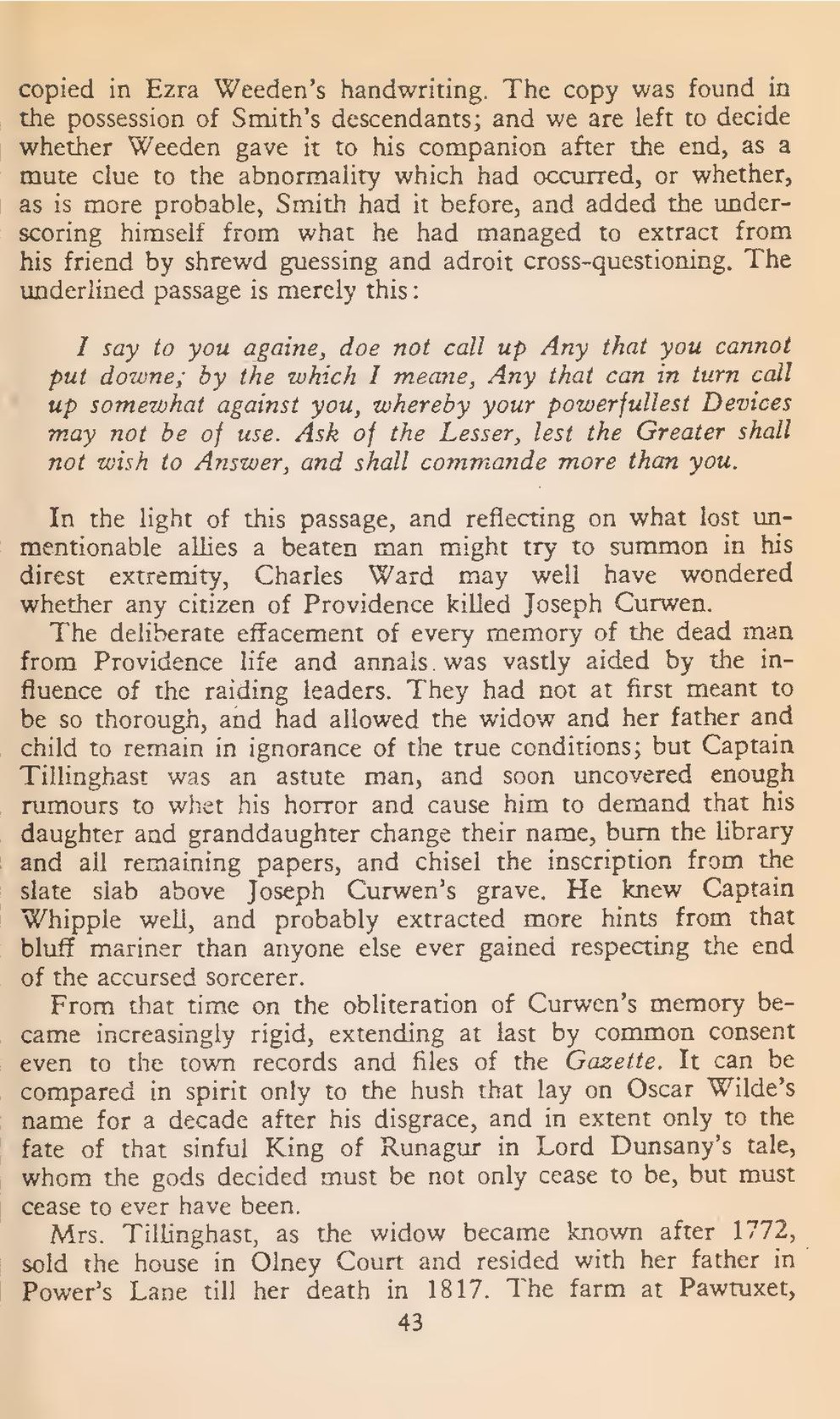copied in Ezra Weeden's handwriting. The copy was found in the possession of Smith's descendants; and we are left to decide whether Weeden gave it to his companion after the end, as a mute clue to the abnormality which had occurred, or whether, as is more probable, Smith had it before, and added the underscoring himself from what he had managed to extract from his friend by shrewd guessing and adroit cross-questioning. The underlined passage is merely this:
I say to you againe, doe not call up Any that you cannot put downe; by the which I meane, Any that can in turn call up somewhat against you, whereby your powerfullest Devices may not be of use. Ask of the Lesser, lest the Greater shall not wish to Answer, and shall commande more than you.
In the light of this passage, and reflecting on what lost unmentionable allies a beaten man might try to summon in his direst extremity, Charles Ward may well have wondered whether any citizen of Providence killed Joseph Curwen.
The deliberate effacement of every memory of the dead man from Providence life and annals was vastly aided by the influence of the raiding leaders. They had not at first meant to be so thorough, and had allowed the widow and her father and child to remain in ignorance of the true conditions; but Captain Tillinghast was an astute man, and soon uncovered enough rumours to whet his horror and cause him to demand that his daughter and granddaughter change their name, burn the library and all remaining papers, and chisel the inscription from the slate slab above Joseph Curwen's grave. He knew Captain Whipple well, and probably extracted more hints from that bluff mariner than anyone else ever gained respecting the end of the accursed sorcerer.
From that time on the obliteration of Curwen's memory became increasingly rigid, extending at last by common consent even to the town records and files of the Gazette. It can be compared in spirit only to the hush that lay on Oscar Wilde's name for a decade after his disgrace, and in extent only to the fate of that sinful King of Runagur in Lord Dunsany's tale, whom the gods decided must be not only cease to be, but must cease to ever have been.
Mrs. Tillinghast, as the widow became known after 1772, sold the house in Olney Court and resided with her father in Power's Lane till her death in 1817. The farm at Pawtuxet,
43
